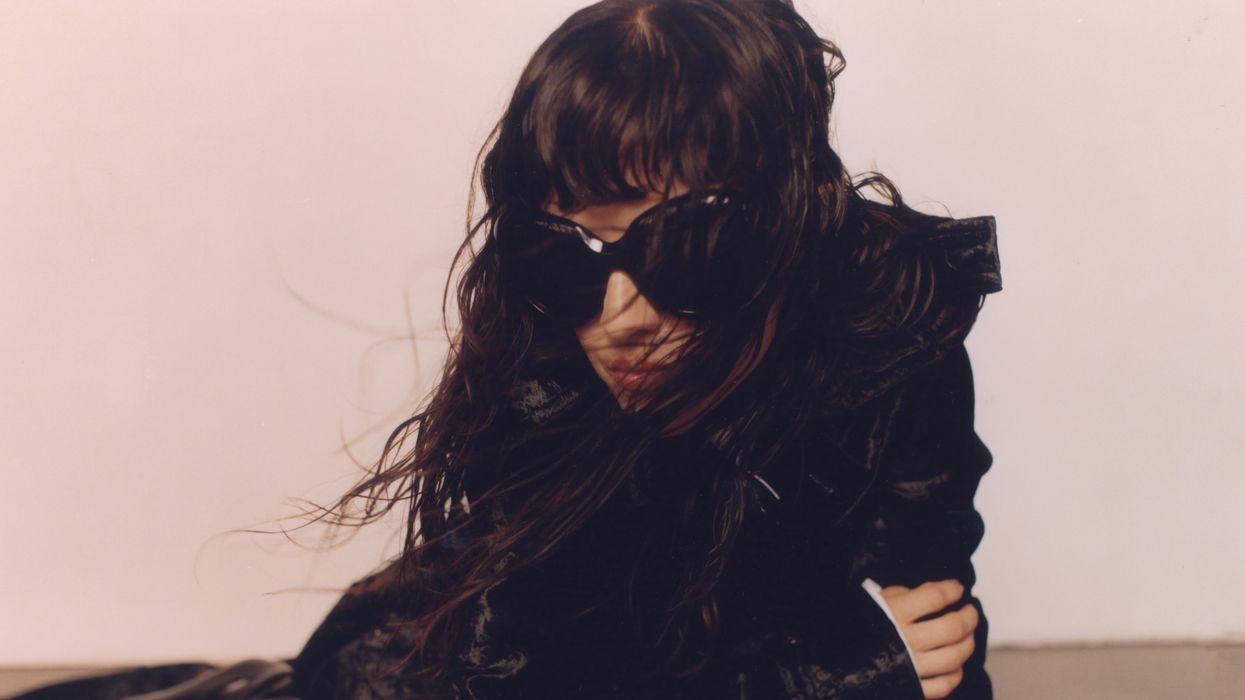
On the song “Echo” off The Marías’s recently-released album Submarine, María Zardoya sings, “Miss the warmth of your neck / when I knew you best / I’m yours, I’m yours,” and later, “Your cry is an echo / and I will let go of your love.” The song captures the central tension of the album: the heartbreaking push and pull of parting ways with someone you still love. It represented a turning point for Zardoya and Josh Conway—co-writer, drummer, and producer of the band—as they wrote the album in the wake of their breakup and the release of their Grammy-nominated LP Cinema (2021). The two founded The Marías and started dating in 2016 after meeting at an open mic at the Kibitz Room in Los Angeles. “I had been in relationships since I was 15, going from one to the other, and I really didn't have this time for myself,” Zardoya explains. “So right before writing this album, I just felt it in my body, I felt it in my bones that I needed to be alone, and I needed to rediscover who I was outside of the context of a relationship and not defined by somebody else.” At first, she found herself censoring her lyrics, but on “Echo” she chose to risk the awkwardness, the potential pain of honesty. “I started singing the chorus, and the words came out, and Josh just looked at me, and I looked at him, and he was like, ‘Well, I guess we're going to go there,’” she recalls.
Submarine takes you through phases of grief, creating gorgeous high points by bringing you to the depths, where Zardoya’s voice sounds like a siren’s ethereal mourning. Grounded by The Marías’s signature bass grooves and languid, seductive dream pop, the album incorporates sounds and rhythms from dancehall, house, and bossa nova. Her potent longing in the penultimate ballad, “If Only,” is underscored by delicate piano and soaring trumpet. With the final track “Sienna,” named for a daughter that can now only exist in imagined worlds, The Marías leave us on the shores, looking back over the sparkling water, honoring memories of lost relationships and paths not taken.
We caught Zardoya a week after the album’s release and a few days before she embarked on a two-month North American tour to discuss self-expression through style, vulnerability, and the role of mutual respect in her and Conway’s creative partnership.
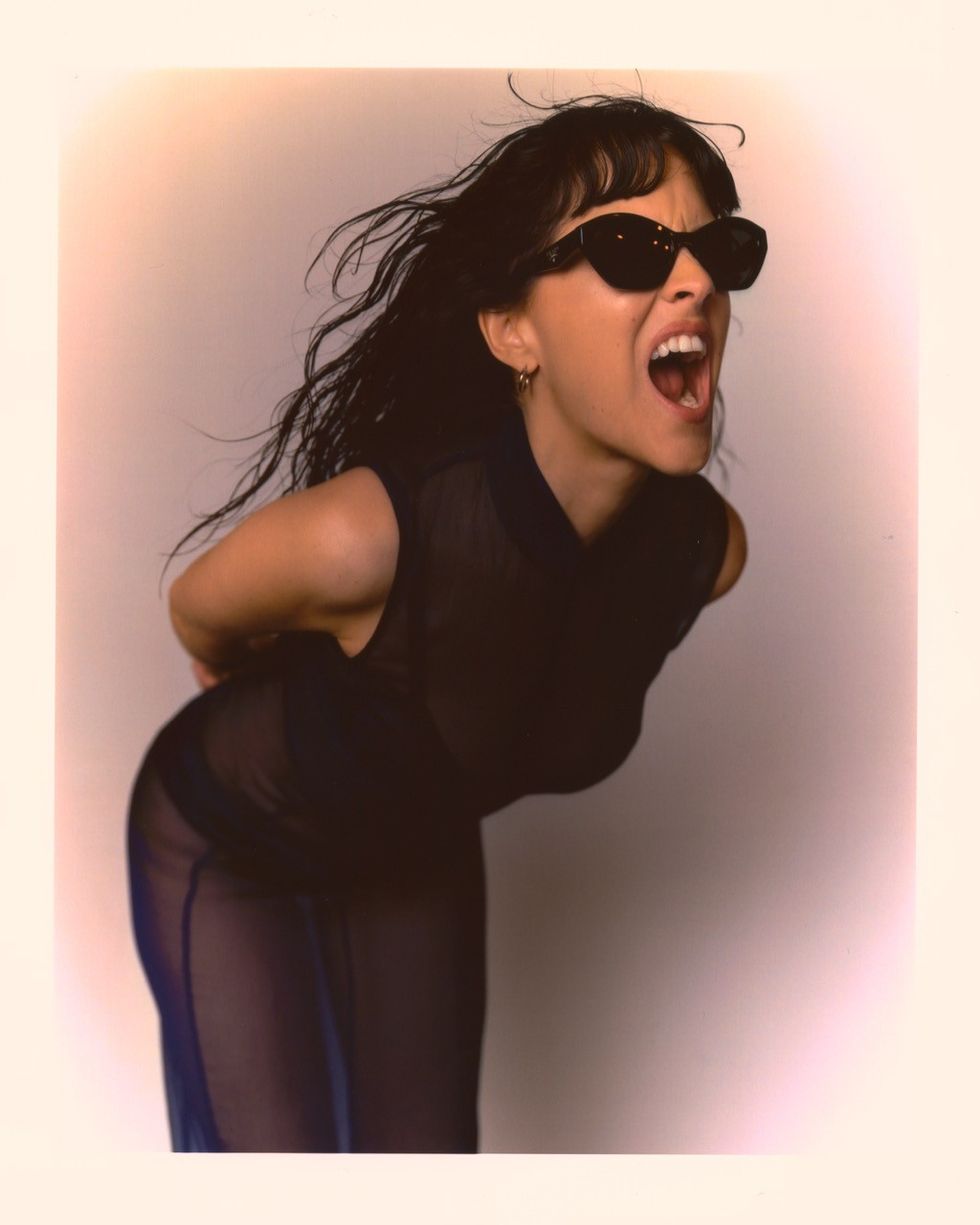
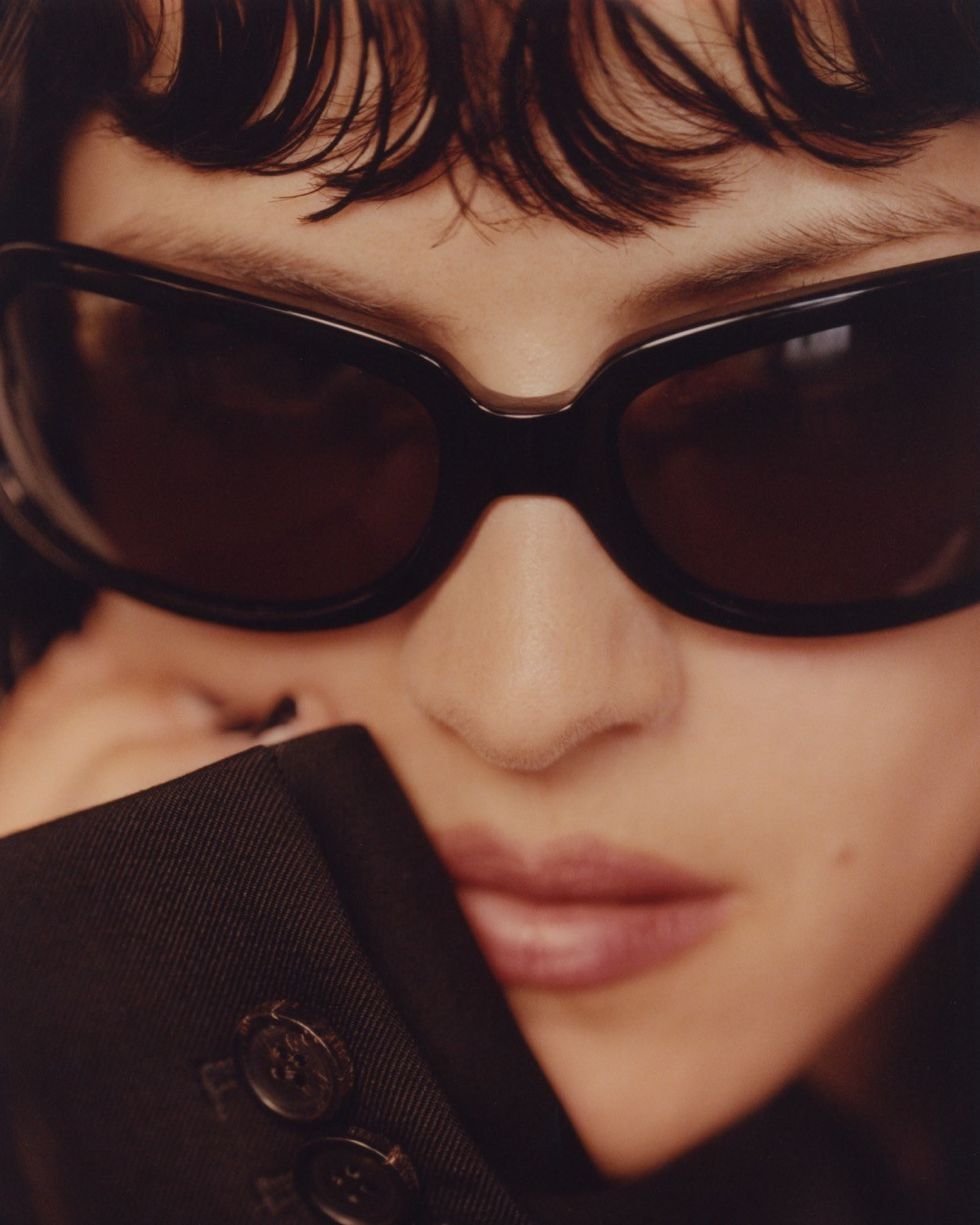
Coveteur: What is your first memory of fashion? What was the first garment that sparked an awareness and interest in fashion and style?
María Zardoya: "I don't remember this, but my mom tells this story all the time. She says that when I was one, when she would try to get me ready to go out somewhere, I was really picky about what I would wear. So she'd go into the closet and just swipe through the clothes and I'd be like, 'No, no, si, no, no, si.' A memory that I have personally is after watching the movie Selena, I was just obsessed with her style and these bustiers and the bedazzled bras. I remember I was too young to wear a bra, but I made my mom go to the store and buy me a bra and sew little beads on it. She's such a good mom, sewing these beads on this training bra, and then I would put it on and dance in front of the mirror."
Do you remember who your big style icons were when you were a teenager?
MZ: “Honestly, my fashion icons were pop stars like Britney, Christina, Lauren Hill, TLC. That's where I would get a lot of my style inspiration, but also, that was the media I was consuming, so I thought that was the coolest.”
When did you first start seriously considering pursuing music as a career?
MZ: “I was raised in a really small town in Georgia called Snellville. There’s, like, a church on every corner. So I never thought that a career in music was even possible. Anytime anybody would even think about wanting a career in music, people would be like, ‘Oh, go on American Idol, go on The Voice.’ That was the extent of what we knew about the music industry.
So I never really thought it was possible until a lot later in life when a friend of mine moved to LA from Georgia to pursue music. She would just call me every day and be like, ‘Maria, you have to come here. If you want to pursue music, this is where you're going to do it.’ So I just took her advice and drove to LA and had no idea what I was doing. Literally no idea. I didn't know anybody.
When I got here, I was just like, 'I'll just play wherever they'll let me.' So I was just playing a bunch of open mics. I would play at restaurants and cafés and all these things, and one of the pseudo open mics is where I met Josh [Conway]. He was born and raised in LA and had been around the music industry his entire life. So I think he taught me a lot, and we just balanced each other out really well and started making music together.”

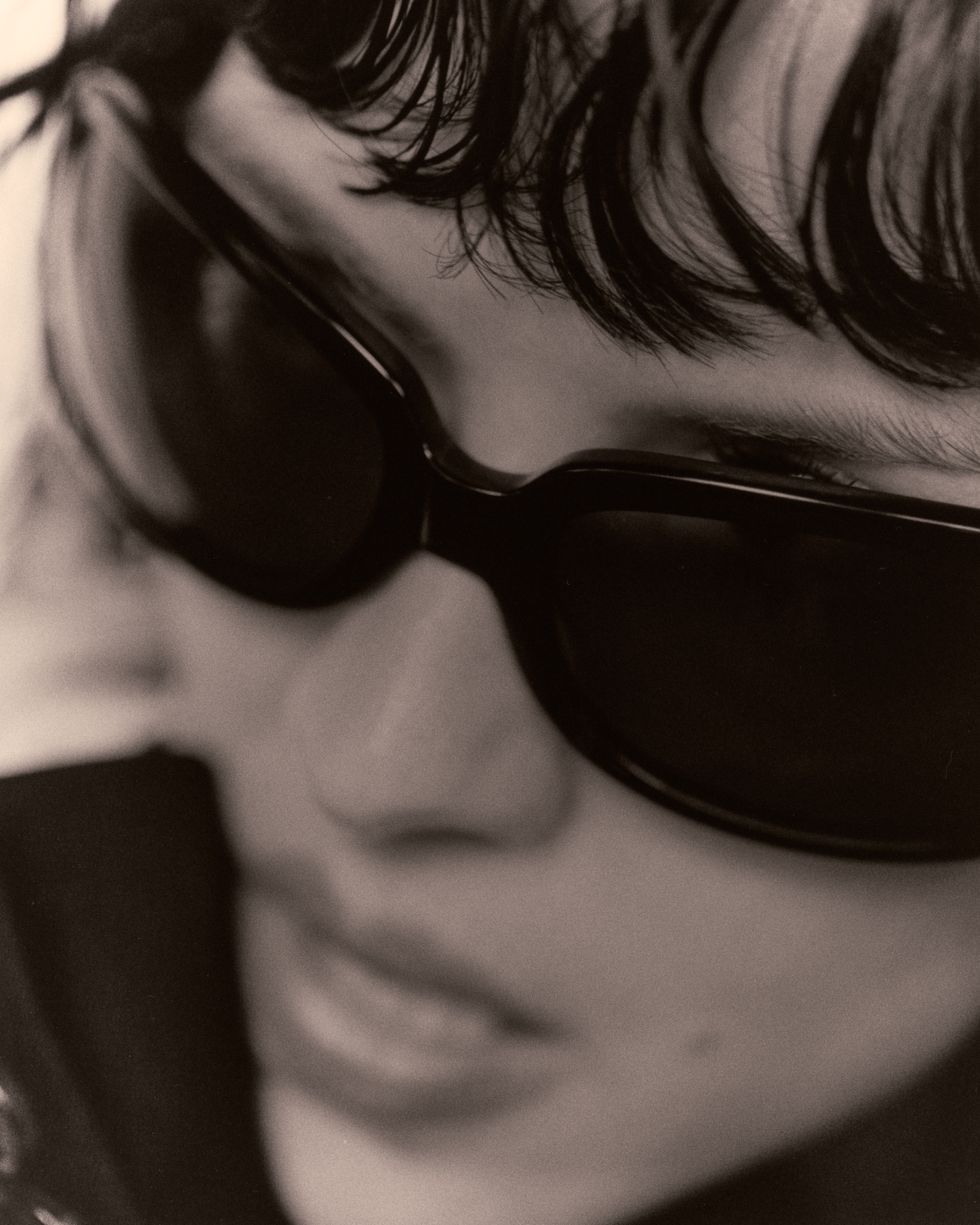
How did you approach styling yourself for the stage in those early days?
MZ: “I would always just borrow vintage clothes from friends and shops. A lot of the stuff that I wear now is still vintage. I like the '90s style. One of the first shows we played, we opened up for Bad Suns at The Fonda. It was our first big show, and I had one of my friends make me an outfit almost inspired by Selena. It was a two-piece red velvet outfit.”
Jumping forward to this period and preparing for this tour, do you ework with stylists, do you typically do things yourself, or is it collaborative?
MZ: “I've been working with a friend of mine, Courtney [Trop], who's been helping style, but it's really a collaborative joint effort. A lot of the time, we'll just go into her closet because she has really amazing pieces, and I'll pull this and that and just kind of put it together. I think when artists work with stylists, they gravitate towards people who have a similar style to them, but it's also a very collaborative effort between the stylist and the artist. It's not like the stylist being like, ‘Here, wear this.’ It's like what represents your style as an artist and what makes you feel comfortable. Especially for the stage, I approach that a little bit differently than a shoot or an editorial. I want to feel 100 percent comfortable on stage. I don't like things to be super tight. I also like to crowdsurf, so I'm really cognizant of what I'm wearing.”
I think of The Marías as having such a strong visual identity, and I've always associated with you guys with the color red and rich textures. How did you guys go about shaping your band’s aesthetic and how do you think it's evolved?
MZ: “The visual world, in general, is something that I've always loved and gravitated towards. I studied film in college, and I always thought I would end up in that side of the entertainment industry. Pedro Almodóvar was a huge inspiration in our early days—his use of color and use of red in his films. He would always have really vibrant pops of red in every single scene, and his attention to detail was also really inspiring for me. I definitely drew a lot of inspiration from his visual identity and his visual worlds, and then I was like, ‘How can this work for The Marias?’”


You've mentioned the Three Colours trilogy as an inspiration for Submarine. What drew you to Blue?
MZ: “A lot of what the character went through in that movie and her journey—her character arc—I related to a lot. At the beginning of the film, she loses her family and finds herself in this lonely place where she's picking up the pieces and going about life as just her. I could relate to that at the beginning of writing this album—I found myself romantically alone after the breakup, and I lost a really dear family member. So my family was going through a lot of loss and I was going through this heartbreak. I related to the character in terms of how she was navigating the world and finding herself and her identity alone. I also love how the director used the color blue at the beginning to directly represent her depressive state, but then as the movie goes along, blue starts representing this hope for the future. That was the same arc that I felt throughout this album. In the beginning, blue represented this really dark and sad state, but as we continued working on the album, I discovered different parts of myself by expressing myself in the lyrics and the music.”
I love the sequencing of the album. Are the songs sequenced roughly chronologically or did they come at different times?
MZ: “At different times. I think it was really hard for us to put together the sequence, and even to this day, we're like, ‘Is this the right sequence?’ But it is what it is. I don't think there's a perfect sequence, but the sequence isn't in order of when the songs were written. One of the last songs that we wrote was actually the intro. After Josh and I wrote it, that was the moment when I was like, ‘Okay. We have an album here.’ Before that, I felt like we had a bunch of songs—a song here, a song there, but it didn’t feel cohesive until we wrote the intro.”
I was watching your Submarine Diaries on YouTube, and I liked a phrase you used. You said you ‘chose solitude.’ I'm always really fascinated by this idea of choosing to do something that might be painful, but then it's better for your growth in the long run. Do you have any further reflections on the difficulty and necessity of being alone?
MZ: “I mean, I wanted to see who I was outside of the context of a relationship. I had been in relationships since I was 15, going from one to the other, and I really didn't have this time for myself. So right before writing this album, I just felt it in my body, I felt it in my bones that I needed to be alone, and I needed to rediscover who I was outside of the context of a relationship and not defined by somebody else. But before I could discover who I was, I had to go through all of those emotions of losing someone, and that's what's reflected in the songs on Submarine.
The perspective of a lot of them is almost like this back and forth where it's like, ‘I love you, but I have to leave you,’ and that's how it felt because it's like you can deeply, deeply love someone, but still need to let them go for your own personal growth. I don't think that that's a selfish way of going about the world. In order to give back to the people around you, you have to put yourself first. It's like what they tell you on planes, ‘put the mask on yourself’—that's truly how it feels. You have to take care of yourself first.”


Do you think going through this experience has allowed you to do some of the more vulnerable songwriting that you have ever done?
MZ: “Definitely. I made a commitment to myself early on in this writing process that I was just going to be as honest as I could, which made for very awkward moments between Josh and me. At the beginning of the writing process, I felt like I was almost censoring myself to not hurt him and to not go deep and to not really go to that place, almost like we were both kind of avoiding it. We wanted to avoid it, but at the end of the day, it was just eating me alive.
I had so much I wanted to say, and so I felt really paralyzed in censoring myself. It just got to a point where I was like, I can't censor myself anymore out of not wanting to hurt someone or out of it being uncomfortable or difficult. I want to go there and trust that Josh can deal with it and trust that I can get through this awkwardness.”
Was there a specific song that you were able to do that on or do you remember the first moment you felt like you could go there?
MZ: “‘Echo.'”
That makes sense.
MZ: “I mean, there were a few, let's be honest, but ‘Echo’ was the one where I started singing the chorus and the words came out, and Josh just looked at me and I looked at him, and he was like, ‘Well, I guess we're going to go there.’ We didn't really talk about it with each other, so I guess we were avoidant in that regard. In that moment, we looked at each other awkwardly, and we were like, ‘Well, I guess we're here now. We might as well just go there.’”
It's just so poignant that something so beautiful was able to come of that.
MZ: “I think a lot of credit to Josh for doing the work and being open to me saying whatever I wanted and whatever was in my heart. I know that it was really awkward and difficult for him to hear such vulnerable and honest words coming from me, especially when things had been avoided in conversation for so long. I think it just put everything at the surface. I respect him a lot for going through this process and being strong enough to work on these really honest songs.”

How does it feel now that the album has been out for a week and these songs are out in the world? How do you feel now that these vulnerable expressions are out there?
MZ: “I feel like I've cut the umbilical cord of my child. For so long, it's like they were protected by me and protected by my body, and I had control over everything. Then now that it's out in the world, I have zero control over how things are perceived or how people relate to these songs. I just have to trust that the album and that the effort and the heart that we put into it travels and that people really see our vulnerability and take care of it.”
Both you and Josh have expressed that the way that you write and work together is perhaps even stronger now than it was previously. What do you think allowed for you guys to continue to be in creative partnership and for it to even flourish in the face of everything that was happening?
MZ: “I think respect for each other and also respect for the music. Just having this mutual understanding that music is what brought us together, music is what's keeping us together, and that it's the most important thing. I think we've come to the conclusion that what's best for the music is being open, vulnerable, and honest regardless of how that makes us independently feel.”
I loved the BTS footage at the end of the ‘Lejos de Ti’ video. It really drove home how insane filming in the snow was. It reminded me of endurance artists like Marina Abramović or Miles Greenberg, the way you were in the snow, putting your body in that position. I was wondering if you had any thoughts about suffering or discomfort at the service of art and whether or not you've perceived a limit for what you would do for it.
MZ: “I haven't reached a limit yet. I think with this rollout, I definitely tested my physical endurance and my emotional endurance. I think it's been one of the hardest rollouts. I mean, granted, we've only put out one album before this and a couple of EPs, but it was definitely the hardest thing that we've done and that I've done, for sure. Every single video was painful, being underwater, being in cold water, being out in the snow, freezing cold, naked. The video that we're putting out next definitely tested my physical endurance. I was hanging from a chandelier and my arms were killing me. It's definitely tested my body and my mind, but it's always temporary.
Even being out in the snow, I knew in my mind: 'I'm going to go about this day. I'm going to be cold. I'm going to be in a blizzard, and it's going to be awful, but it's temporary. I'm not going to live every single day like this or every single moment like this.' That's what got me through—just knowing that this is a momentary discomfort that's not going to last forever. I think that can be said about so many different things in life.”

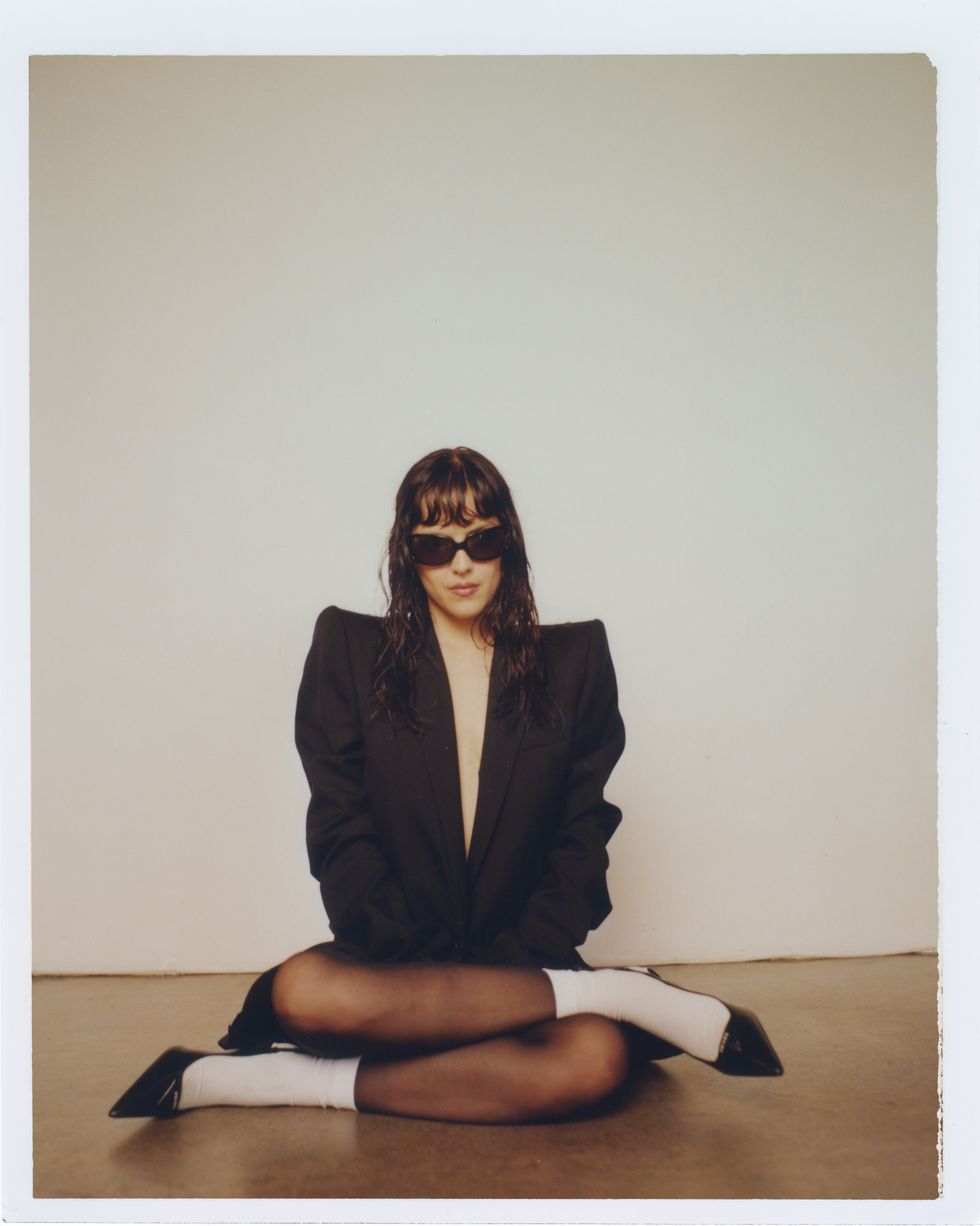
Speaking of endurance, how are you feeling about this upcoming tour and performing these songs?
MZ: “I'm excited for the tour. The songs sound so good. We've been rehearsing them as a band. We just played a secret show downtown, and that was the first time we played these songs live and it was really special just seeing the fans' reactions and having that human interaction. So much of what we live through now is just digital interactions and through technology. So at shows, it's the time when we can be human together and share this experience in person. It just takes on a whole different life than just communicating with each other through a screen.”
When you are performing, do you feel like you reach a state that you can't really otherwise in regular interaction?
MZ: “Yeah. I think there are moments of really connecting with certain fans, like making eye contact and just feeling like we mutually understand each other in this moment. Those moments are really special, and then there are definitely some flow states. There's so much that is going through my mind during a performance. I've got in-ears, I've got the click going, I have to make sure that I remember the lyrics, that I remember what part of the song we're at while also being cognizant of what I'm doing with my body, and where I am on stage. There's so much going through my head that it's difficult to really enter a flow state, but there are a few very rare moments that I do enter that flow state and of just being 100% present and my mind not on anything else, and those moments are really special.”
While on the road, do you have any rituals or rules for yourselves or methods of allowing you to stay healthy, centered, and sane while performing night after night?
MZ: “I have always visited the botanical gardens in each city. Just look them up on a map and go, mostly just on my own. I think I'm going to continue to do that because I think that helps me get to know the city, but also gets me in nature, helps me recenter, and get some time alone too.”
It feels like each project has such a strong visual reference, and so I was wondering, is there anything percolating that's starting to inspire you for what's next?
MZ: “Yes, 100 percent. We already have the concept, the title, and some songs for the next album. I know exactly. I have a very, very clear vision for what that project is, just exactly how I had the very clear vision of the visual world for Submarine and Cinema.”
Can you give me the color hint?
MZ: “I learned my lesson with this last rollout. With Submarine, I remember being so excited about the concept, so excited about the color and all these references that I was just sharing it with everyone. For this next one, I need to reel it back and not give out too many hints.”

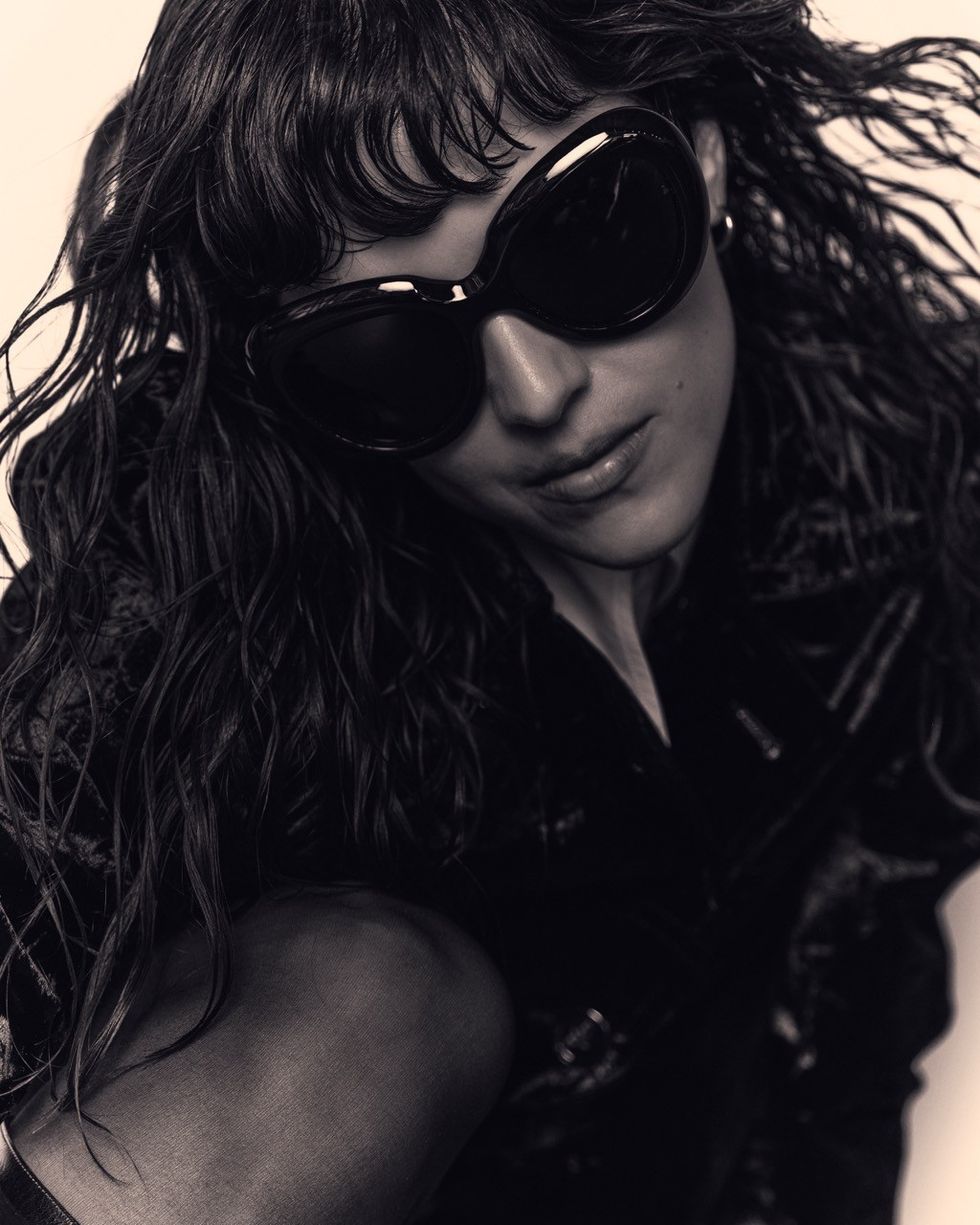
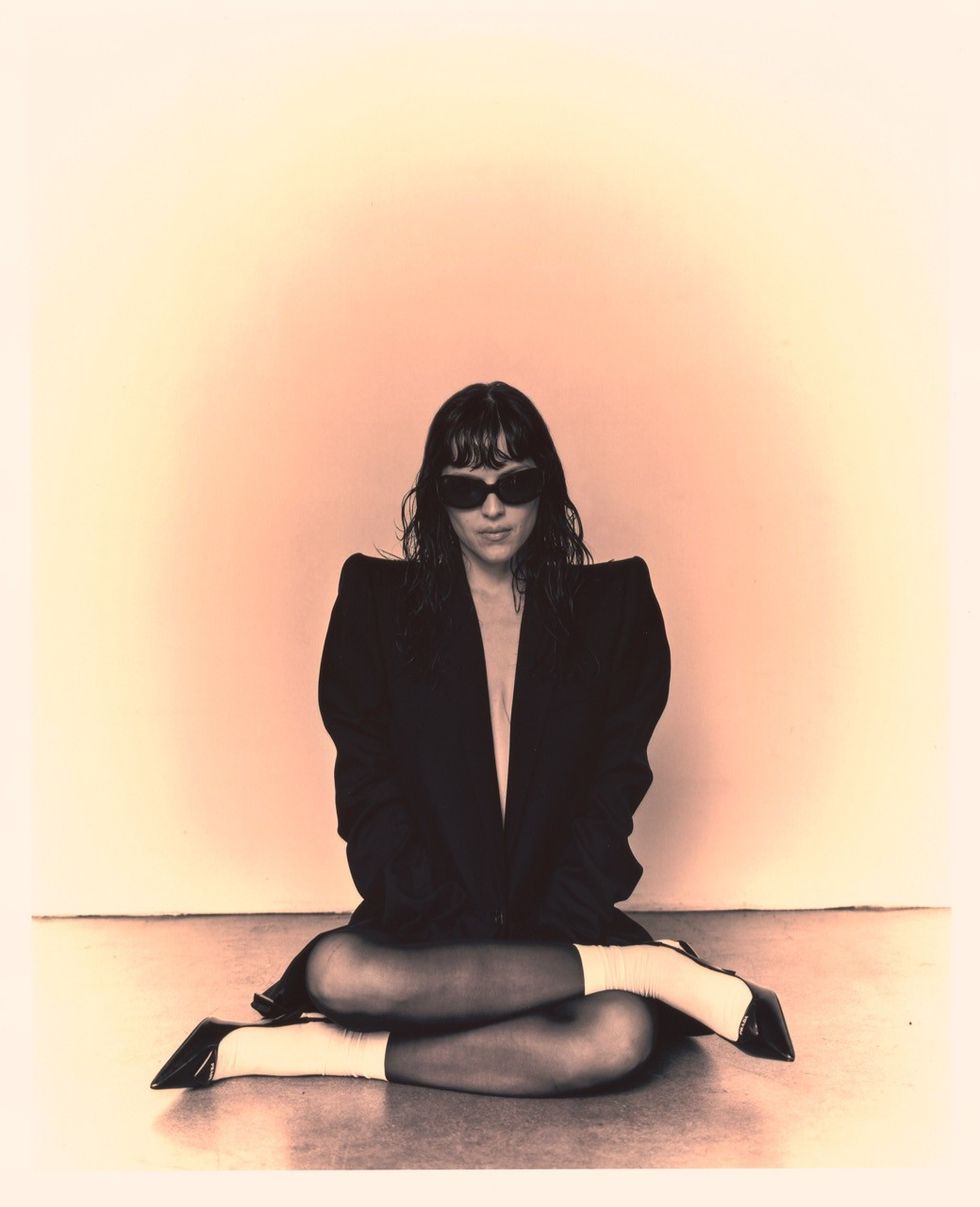




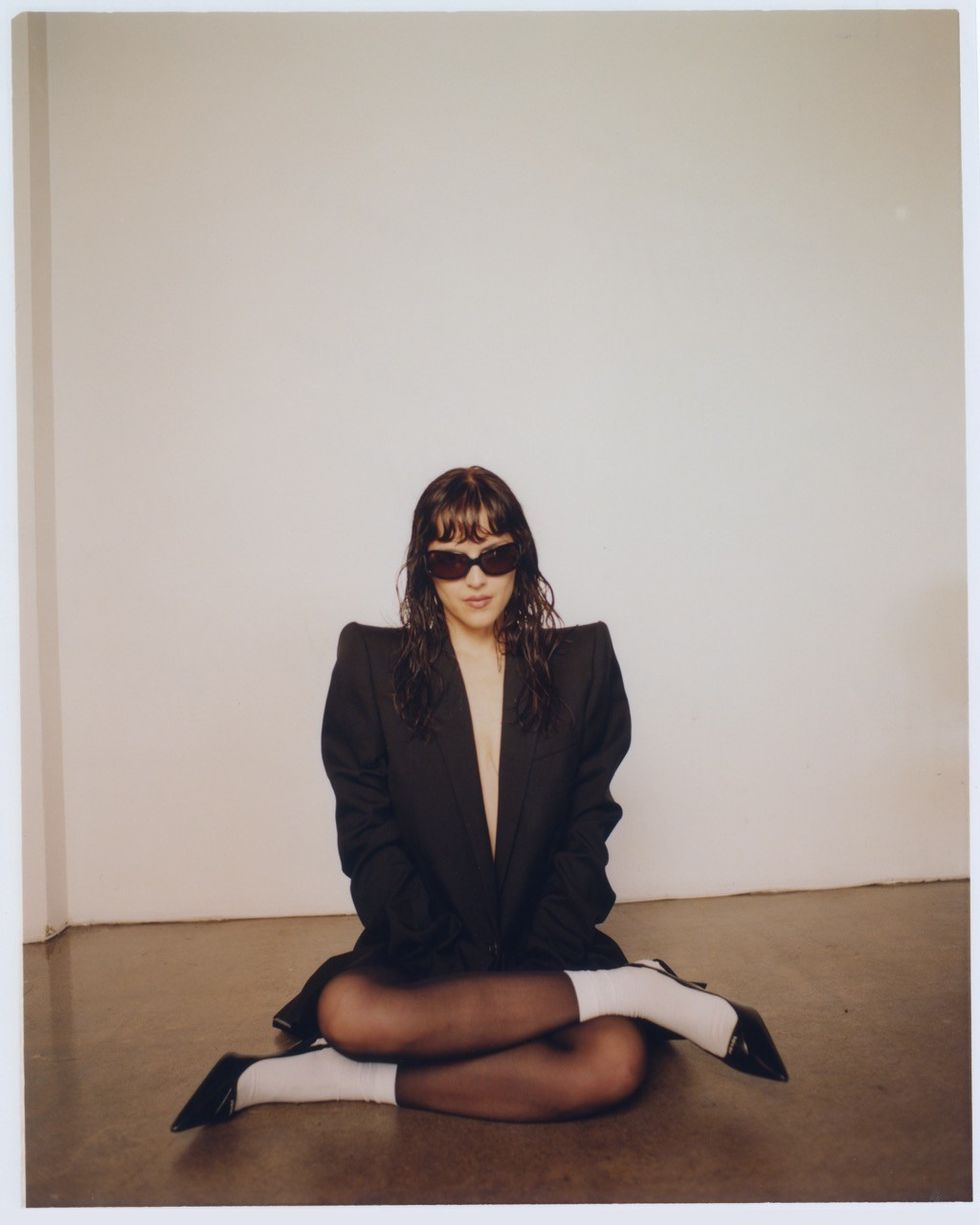




Style Editor: Camille Freestone / Art Director: Smiley Stevens / Editor-in-Chief (at Large) : Jenna Lyons / Fashion Editor (at Large): Sarah Clary / Managing Editor: Hilary George-Parkin / Casting Director: Yasmin Coutinho / Executive Producer: Marc Duron
Want more stories like this?
Gavin Turek Is No One’s Sad Girl
GCDS Creative Director Giuliano Calza Is Constantly Shopping
Her Majesty Arden Cho
from Coveteur: Inside Closets, Fashion, Beauty, Health, and Travel https://ift.tt/xViuGNT
via IFTTT
Comments
Post a Comment